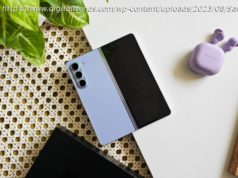Is the app the next frontier of political campaigning or just another place to burnish one’s image?
If all politics is theater, Representative Tim Ryan is one of its subtler actors. A moderate Democrat from Ohio’s 13th district who has represented the state for nearly two decades, his speeches and debate performances are often described as coming out of central casting. His style choices are D.C. standard. He’s not usually the subject of late-night skits or memes. That’s not to say he isn’t trying. Back in the spring of 2020, as Covid-19 was overtaking the country and a divided Congress was duking it out over a sweeping stimulus bill, Mr. Ryan,48, was so frustrated at the stalled legislation that he decided to channel his emotion into a TikTok video. The 15-second clip features Mr. Ryan lounging around his office in a white button-down and dress pants, his tie slightly loose, as he mimes a clean version of “Bored in the House,” by Curtis Roach. It’s a rap song that resonated with cooped-up Americans early on in the pandemic, featuring a refrain (“I’m bored in the house, and I’m in the house bored”) that appears in millions of videos across TikTok. Most of them depict people losing their minds in lockdown. Mr. Ryan’s interpretation was a little more literal: Bored… in the House … get it? Mr. Ryan is not a politician one readily associates with the Zoomers of TikTok. His talking points tend to revolve around issues like reviving American manufacturing rather than, say, defunding the police. But the chino-clad congressman wasn’t naïve to the nontraditional places from which political influence might flow. Years ago he was all in on meditation. Why not try the social platform of the moment? His teenage daughter, Bella, got him up to speed and taught him some of the dances that had gone viral on the app. “I just thought it was hysterical, and that it was something really cool that her and I could do together,” Mr. Ryan said in a phone interview. Soon enough, he was posting on his own account, sharing video montages of his floor speeches and his views on infrastructure legislation, backed by the sound of Taylor Swift’s “All Too Well.” (As any TikTok newbie would quickly learn, popular songs help videos get discovered on the platform.) “I started to see it as an opportunity to really speak to an audience that wasn’t watching political talk shows or watching the news,” Mr. Ryan said. This year, he’s running for Ohio’s open Senate seat; he thinks TikTok could be a crucial part of the race. But as primaries begin for the midterm elections, the real question is: What do voters think? Social media has played a role in political campaigning since at least 2007, when Barack Obama, then an Illinois senator, registered his first official Twitter handle. Since then, enormous numbers of political bids have harnessed the power of social platforms, through dramatic announcement videos on YouTube, Twitter debates, Reddit A.M.A.s, fireside chats on Instagram Live and more. TikTok, with its young-skewing active global user base of one billion, would seem a natural next frontier. So far, though, compared with other platforms, it has been embraced by relatively few politicians. Their videos run the gamut of cringey — say, normie dads bopping along to viral audio clips — to genuinely connecting with people. “TikTok is still in the novelty phase in terms of social media networks for political candidates,” said Eric Wilson, a Republican political technologist. Republicans in particular have expressed concerns about the app’s parent company, ByteDance, whose headquarters are in China. In the final year of his presidency, Donald J. Trump signed an executive order to ban the app in the United States, citing concerns that user data could be retrieved by the Chinese government. (President Biden revoked the order last summer.) After a brief stint on the app, Senator Marco Rubio of Florida, a Republican, deleted his account. He has since called on President Biden to block the platform entirely. In an email statement, Mr. Rubio,50, wrote that TikTok “poses a serious threat to U.S. national security and Americans’ — especially children’s — personal privacy.






